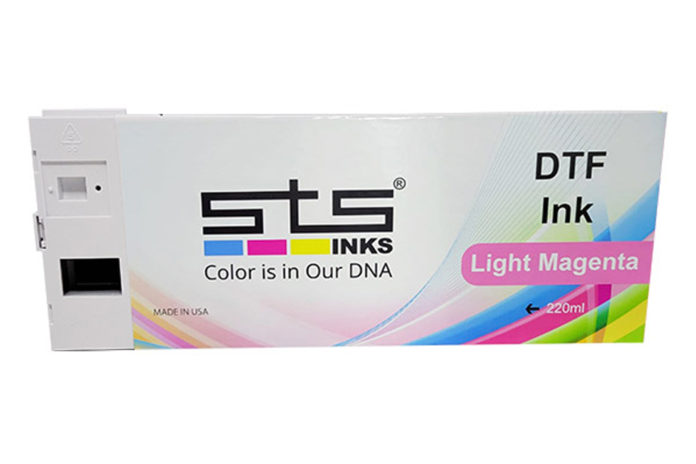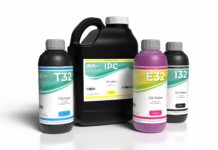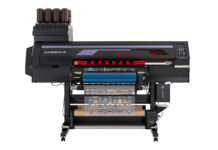Wide format inkjet inks provider STS Inks has released its new Light Magenta and Light Cyan inks for Direct-to-Film (DTF) printing. The new colors allow more true-to-life images by providing better transitions and sharper, more vibrant and exact colors in transferred images, which are beneficial for producing both gradients and skin tones on garments.
According to a report published by Grandview Research, the global custom t-shirt printing market size was valued at USD $3.64 billion in 2020. The research also reports the market is expected to expand at a compound annual growth rate (CAGR) of 9.7 percent from 2021 to 2028. Those printing companies experiencing the rapid growth are also seeing an exponential increase in requests for photographic images to be printed on garments.
In DTF printing, Light Cyan and Light Magenta are considered blending colors rather than full colors. Blending colors allow for the transitioning from dark blue to light blue to create an image of a sky or an ocean. This process requires a better gradient and more natural tones. In contrast to pure cyan or pure magenta configurations, these new inks eliminate half tones. Also eliminating the need to print with white ink, the light colors increase the speed of printing, saving both time and money.
With the increasing number of customer requests for garments printed with portraits of people, the ability to provide lifelike imagery to exact specifications is a key differentiator because CMYK alone does not accomplish the same artistry. Another benefit of adding these light inks is that the DTF solution can be utilized to print on water-based media such as canvas, vinyl, photo paper, posters, and banners, which essentially makes the DTF printer an all-in-one machine.
“Our new inks are an exceptional tool in the DTF arsenal that allows imagery and photography to be more vibrant and realistic,” said Adam Shafran, CFO of STS Inks. “The use of Light Cyan and Light Magenta not only reduces graininess in the transferred image but also prints beautifully on water-based vinyl, canvas, photo paper, and a host of other solvent-free media.”
—Press Release











